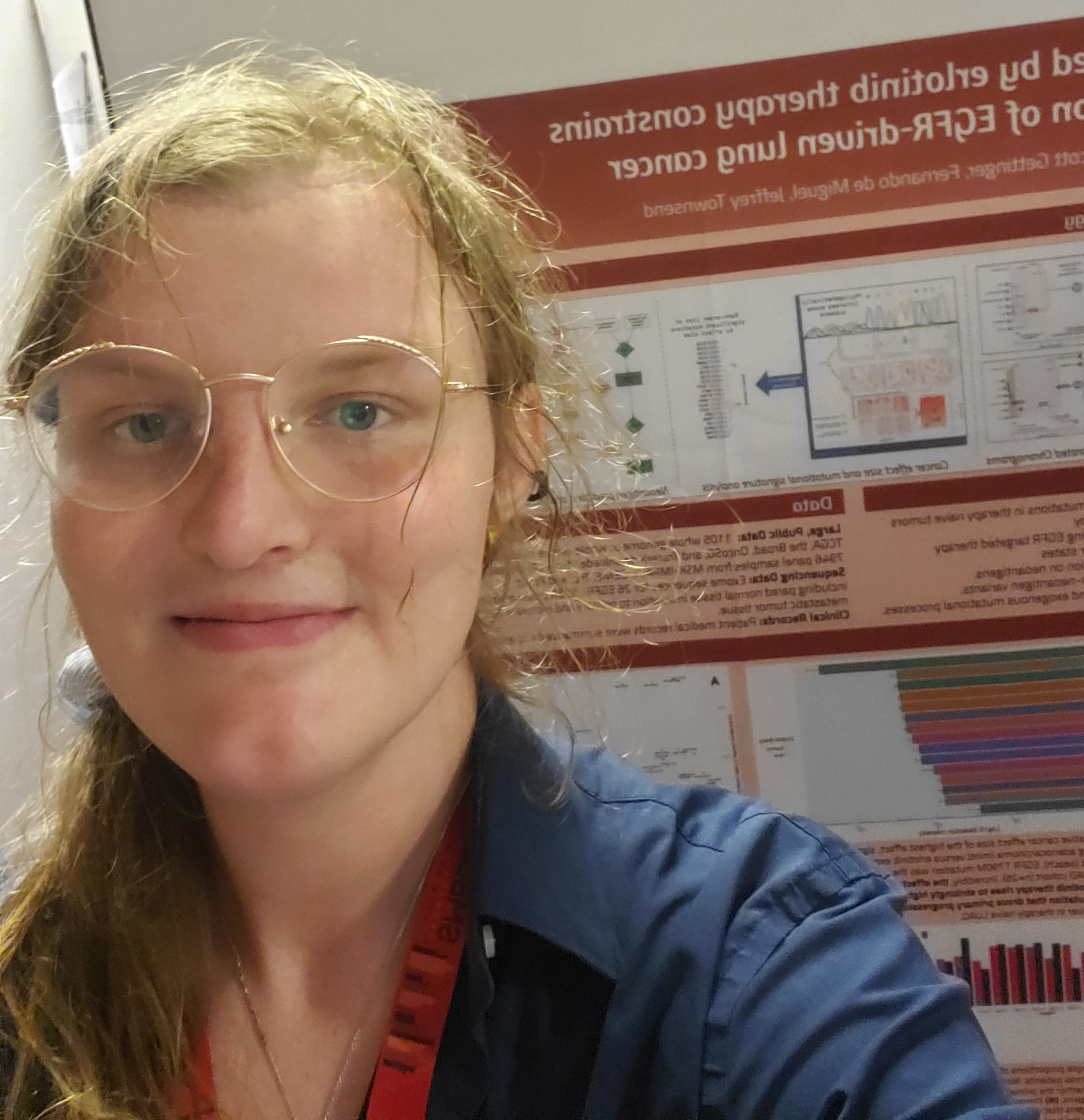Dr. Fisk received their Ph.D. from Yale University (2023) in the lab of Jeffrey Townsend as a part of the interdepartmental program in Computational Biology and Bioinformatics. At Yale, they were the first person from the Computational Biology and Bioinformatics program to complete NIH-funded cross-training program (Cancer Biology Training Program) at the Smilow Cancer Center, was awarded an NCI F31-Diversity Fellowship, and served as the president of graduate and professional students. Dr. Fisk’s research focused on the applied use of evolutionary techniques—especially phylogenetics—to solve a wide range of medically-relevant questions. In particular, they studied therapeutic resistance in cancer, preferential site-migration in cancer and B cells, and immunogenetic interactions with tumor evolution. They also worked to advance phylogenetic experimental design, including implementation of signal and information-based methods for optimal site-gene-taxa sampling. Additionally, Dr. Fisk worked for four years at the Poorvu Center for Teaching and Learning at Yale, developing and running workshops for graduate students and post-docs to improve their pedagogy skills, including the first evidence-based teaching workshop and a number of workshops focused on DEI and technology in the classroom.
Dr. Fisk joined the College of the Environment and Life Sciences at URI in the department of Cell and Molecular Biology in the Fall of 2023. Here, Dr. Fisk continues work on translating “basic science” methods in genomic, evolution, and bioinformatics to address “real-world” problems, as well as operates a laboratory focused on Discipline-Based Education Research in Computational Biology.
